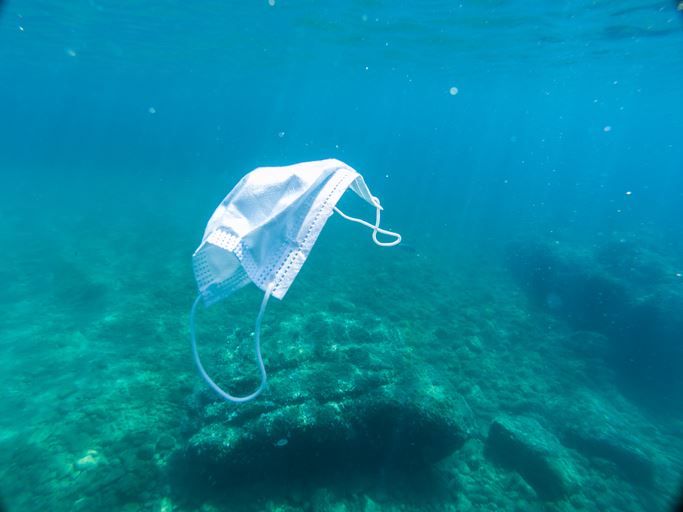
(Newser)
– The COVID-19 pandemic has worsened the plague of plastic in the world’s oceans. Several Philippine divers say that after returning to the coral reefs when a national closure was lifted, they were dismayed to find more plastic in the sea than they had ever seen, including numerous surgical masks, the BBC reports. A dive professional says that in the first ten minutes of a dive on a coral reef in Batangas, southeastern Manila, he collected at least a dozen masks from the reef, some of which were covered with ‘algae and clearly carried there for months.
Environmental groups warn that the plastic inside the masks is broken down into microplastics, which marine life is consuming. They urge the government to establish stricter controls for the disposal of medical waste. Researchers in Manila alone have produced an additional 280 tons of this type of waste daily during the pandemic. And the problem is global: last year, during the first months of the pandemic, French advocates said they found large numbers of personal protective equipment in the Mediterranean and warned that there could soon be “more masks.” that jellyfish. ” Guardian reports. They asked the public to adopt reusable masks instead of disposable ones. (Read more facial mask stories.)